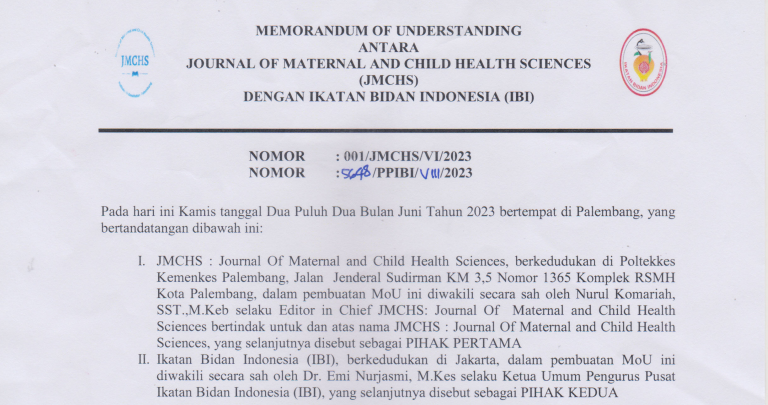The Relationship Of Mother's Knowledge And Husband's Support With Pregnant Women's Class Participation In The Working Area In The Petanang Health Center Area Lubuklinggau City In 2024
Abstract
Pregnant women's classes are an effort to reduce maternal mortality through examination activities and providing materials such as danger signs for pregnant women. However, many pregnant women do not participate in this activity, because they do not know about the class for pregnant women and their husbands do not support it. To find out the relationship between mother’s knowledge and husaband’s support with pregnant women’s class participation in the working area in the Petanang Health Center Area Lubuklinggau City in 2024. This study uses an analytical survey with a cross sectional research design. The sampling technique used accidental sampling with a sample of 44 respondents. The statistical test used in this study is the Chi-Square test and the significance value of mother’s knowlegde (ρ value 0.000) and husband’s support (ρ value 0.015). There is a relationship between mother’s knowledge and husband’s support with pregnant women’s class participation in the working area in the Petanang Health Center Area Lubuklinggau City in 2024
Copyright (c) 2024 Journal of Maternal and Child Health Sciences (JMCHS)

This work is licensed under a Creative Commons Attribution-ShareAlike 4.0 International License.
Authors who publish with this journal agree to the following terms:
- Authors retain copyright and grant the journal right of first publication with the work simultaneously licensed under a Creative Commons Attribution License that allows others to share the work with an acknowledgement of the work's authorship and initial publication in this journal.
- Authors are able to enter into separate, additional contractual arrangements for the non-exclusive distribution of the journal's published version of the work (e.g., post it to an institutional repository or publish it in a book), with an acknowledgement of its initial publication in this journal.
- Authors are permitted and encouraged to post their work online (e.g., in institutional repositories or on their website) prior to and during the submission process, as it can lead to productive exchanges, as well as earlier and greater citation of published work












